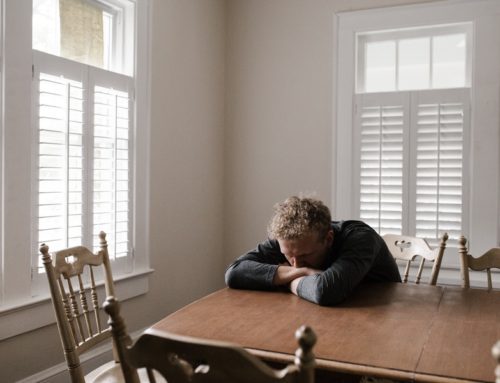“Doomscrolling” is one more way we’re found to worsen our national mental health during the time of COVID-19. It refers to the tendency people have to scroll through their news feeds, seeking out the worst news possible.[1] As with so many new trends, the internet and the 24/7 news cycle in conjunction with the multiple calamities of this year gave birth to it.
Our phones and other devices allow an infinite stream of bad news to come into our lives all the time. We may think we’re immune to it, but our fascination with passively consuming bad news erodes our psychological defenses and promotes even more anxiety and depression.
Sometimes immersing ourselves in bad news can feel like a way of controlling it, as if saturating our awareness with news of everything that’s wrong makes us better able to cope. It doesn’t, of course, help at all and increases our burden of misery.
It’s important to understand that we’re wired to consume information about the world around us. Failing to perceive a threat would be the death of one of our distant ancestors. Yet for ancient peoples, their whole world was the limit of what they could personally perceive. Nowadays, we can cast our nets far and wide for bad news.
- Set limits for your news consumption. Allow yourself no more than 10 minutes three or four times a day to consume news.
- Become aware and intentional about your news consumption. Instead of just falling into a rut of passive news consumption, seek out news stories you want to read instead of reading many reports
- Replace the negative with the position. By no means should you pretend things are fine when they patently aren’t, but examining the things that are going right for you feeds your ability to generate even more positivity.
Our goal here is not to deny the very real dangers that exist, but to keep them from taking up too much space in our thoughts. Consider this metaphor—if you’re on a trip and your car is running low on gas, you aim for a gas station. You don’t punch holes in your gas tank. Drowning ourselves in disturbing news provokes feelings of hopelessness and helplessness, which in turn drains our ability to take the actions we need to take to stay healthy.
If you’re feeling hopeless about the future and need some help in refocusing, Damaris Aragon, ARNP, BC provides a full spectrum of mental health care to people in Spokane, Washington, and surrounding areas. She focuses on providing personalized, compassionate care that adheres to current evidence-based standards. Reach out to Damaris through her contact page or calling 509-342-6592.
[1] https://www.dictionary.com/e/s/new-words-we-created-because-of-coronavirus/#doom-scrolling






